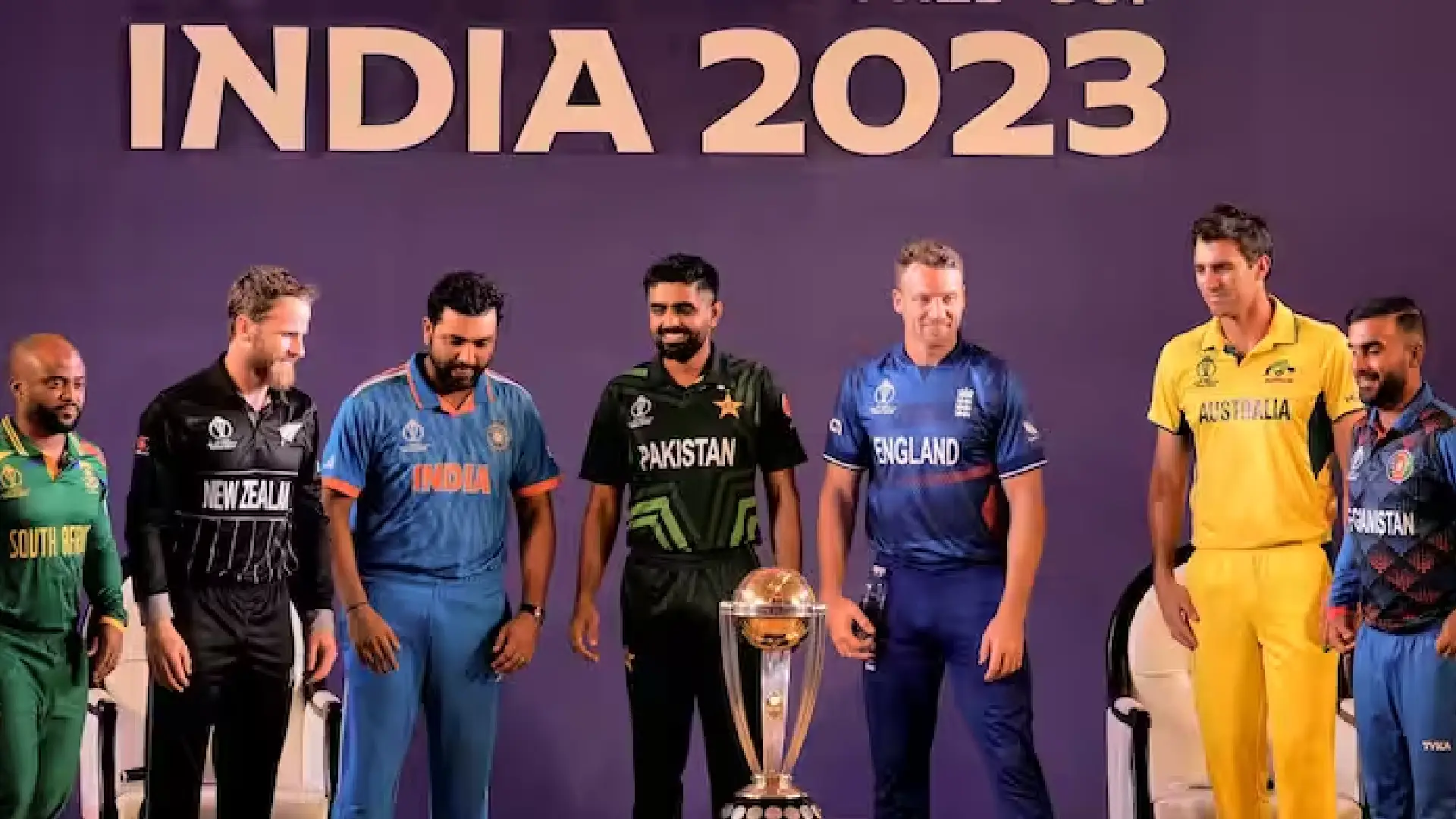World Leaders Unite at Thrilling ICC Cricket World Cup Final in Ahmedabad

World Leaders Unite at Thrilling ICC Cricket World Cup Final in Ahmedabad
In a remarkable display of camaraderie and sportsmanship, Prime Minister Narendra Modi and Australian Deputy Prime Minister Richard Marles graced the ICC Cricket World Cup final in Ahmedabad on Sunday evening. The highly anticipated match between cricket powerhouses India and Australia took place at the iconic Narendra Modi Stadium, marking a convergence of political leadership and the passion for the gentleman’s game.
The arrival of the distinguished leaders was met with enthusiasm as Gujarat Chief Minister Bhupendra Patel extended a warm welcome at the airport. The presence of Governor Acharya Devvrat and Gujarat BJP Chief CR Paatil underscored the significance of this global sporting event, transcending boundaries and fostering diplomatic relations through the spirit of cricket.
As the leaders disembarked from their respective aircraft, the air buzzed with excitement, setting the stage for a memorable evening of cricketing prowess and international camaraderie. The fact that political heavyweights chose to come together for a sporting event speaks volumes about the unifying power of cricket and its ability to bridge differences.
Prime Minister Narendra Modi, a vocal advocate of promoting sports and fitness, demonstrated his commitment to the game by attending the World Cup final. Dressed in casual attire, he exuded a sense of relatability, aligning with the informal atmosphere of the stadium. Australian Deputy Prime Minister Richard Marles, equally at ease, showcased the shared love for cricket that transcends geographical and political divides.

The Narendra Modi Stadium, a sprawling monument to the sport, witnessed a convergence of cultures as the leaders, along with thousands of cricket enthusiasts, settled into their seats. The stadium, named after the Prime Minister himself, stood as a symbol of India’s commitment to fostering a culture of sportsmanship and competition.
The match itself was a rollercoaster of emotions, with both teams displaying exemplary skill and determination. The leaders, seated side by side, engaged in animated discussions, reflecting the diplomatic undercurrents that often accompany such high-profile gatherings. The ebbs and flows of the game provided moments of tension and jubilation, serving as a microcosm of the ups and downs in international relations.
Gujarat Chief Minister Bhupendra Patel, who played the role of a gracious host, facilitated interactions between the leaders during breaks in the game. These informal exchanges, occurring against the backdrop of a fiercely contested cricket match, highlighted the potential for sports diplomacy to foster understanding and collaboration.
Governor Acharya Devvrat, a spectator in the sea of cricket fans, symbolized the unifying power of sports that transcends political affiliations. The collective cheers and groans from the audience echoed the shared passion for cricket, momentarily setting aside differences and celebrating the spirit of competition.

Gujarat BJP Chief CR Paatil, an ardent cricket enthusiast, epitomized the fusion of politics and sports, showcasing how a shared love for the game can create common ground for dialogue and cooperation. His presence underscored the idea that beyond the corridors of power, individuals can connect on a human level through the universal language of sports.
As the sun dipped below the horizon, casting a warm glow over the stadium, the atmosphere became electric. The culmination of the World Cup final was met with a crescendo of cheers and applause, regardless of team allegiances. The leaders, rising to their feet in a rare display of unity, applauded the players for their exceptional skills and the fans for their unwavering support.
The post-match ceremony provided an opportunity for Prime Minister Modi and Deputy Prime Minister Marles to exchange pleasantries and extend congratulations to the victorious team. The camaraderie displayed on the field mirrored the diplomatic efforts to strengthen ties between India and Australia, emphasizing the role of sports as a bridge between nations.
The World Cup final in Ahmedabad not only witnessed cricketing excellence but also served as a platform for showcasing the rich cultural tapestry of India. The vibrant hues of traditional attire worn by spectators from various parts of the country painted a vivid picture of diversity and unity. The leaders, immersed in the kaleidoscope of colors and fervor, experienced firsthand the cultural mosaic that defines India. This cultural exchange, unfolding amidst the cricketing extravaganza, added an extra layer of significance to the event, emphasizing the role of sports in fostering a sense of shared identity.
The attendance of political luminaries at such a high-stakes cricket match underscored the importance of leveraging soft power to strengthen diplomatic ties. Beyond the formalities of official meetings and summits, these leaders found common ground in the passion for sports, transcending the rigid structures of political discourse. The Narendra Modi Stadium, echoing with the cheers of thousands, became a melting pot of ideas, ideologies, and aspirations, symbolizing the potential for collaboration and understanding on a global scale.
The presence of Australian Deputy Prime Minister Richard Marles in Ahmedabad signaled a commitment to the Indo-Pacific partnership and showcased the significance of people-to-people connections in diplomacy. The cricketing spectacle provided a unique backdrop for fostering a deeper understanding between India and Australia, reinforcing the idea that shared moments of joy and excitement can lay the foundation for enduring friendships. As the leaders engaged in animated conversations during strategic breaks, it became evident that the World Cup final was more than a cricket match—it was a forum for informal diplomacy, where relationships were nurtured amidst the cheers and jeers of the crowd.

In the aftermath of the gripping final, as the leaders bid farewell to the vibrant city of Ahmedabad, the echoes of their shared experience lingered. The Narendra Modi Stadium, having played host to this convergence of political and sporting worlds, stood as a symbol of the potential for unity in diversity. The ICC Cricket World Cup final in Ahmedabad, with its blend of cricketing prowess, cultural vibrancy, and diplomatic overtures, etched itself into the annals of history as a testament to the transformative power of sports in bringing nations together. As the leaders departed, the lasting image was not just of a cricket match but of a shared celebration of the human spirit, where boundaries blurred, and friendships blossomed on the hallowed grounds of the cricketing arena.
In conclusion, the convergence of Prime Minister Narendra Modi and Australian Deputy Prime Minister Richard Marles at the ICC Cricket World Cup final in Ahmedabad was more than a diplomatic spectacle; it was a celebration of the shared love for cricket that transcends borders. The leaders, along with other political figures, showcased the potential of sports diplomacy to build bridges and foster a sense of unity in a world often divided by geopolitical complexities. As the cricketing world witnessed a thrilling clash on the field, the political arena, too, experienced a moment of solidarity, reminding us that the spirit of competition can bring people together in unexpected ways.




